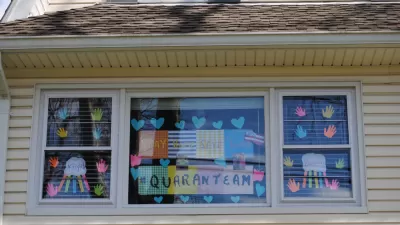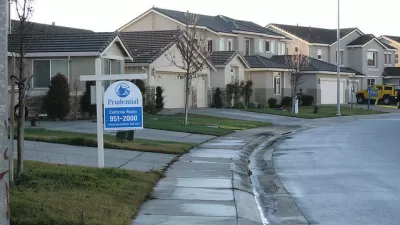Banks and financial institutions are making the foreclosure crisis worse, as lobbying efforts seek to block bankruptcy courts from gaining more power to reduce debt, according to this article from Der Spiegel.
"But with 1 million residences having fallen into foreclosure since 2006, and an additional 5.9 million expected over the next four years, the Obama plan -- whatever its details -- can't possibly do the job by itself. Lenders and investors will have to acknowledge huge losses and figure out how to keep recession-wracked borrowers making at least some monthly payments.
So far the industry hasn't shown that kind of foresight. One reason foreclosures are so rampant is that banks and their advocates in Washington have delayed, diluted, and obstructed attempts to address the problem. Industry lobbyists are still at it today, working overtime to whittle down legislation backed by President Obama that would give bankruptcy courts the authority to shrink mortgage debt. Lobbyists say they will fight to restrict the types of loans the bankruptcy proposal covers and new powers granted to judges."
FULL STORY: How Banks Are Worsening the Foreclosure Crisis

Planetizen Federal Action Tracker
A weekly monitor of how Trump’s orders and actions are impacting planners and planning in America.

Restaurant Patios Were a Pandemic Win — Why Were They so Hard to Keep?
Social distancing requirements and changes in travel patterns prompted cities to pilot new uses for street and sidewalk space. Then it got complicated.

Map: Where Senate Republicans Want to Sell Your Public Lands
For public land advocates, the Senate Republicans’ proposal to sell millions of acres of public land in the West is “the biggest fight of their careers.”

Maui's Vacation Rental Debate Turns Ugly
Verbal attacks, misinformation campaigns and fistfights plague a high-stakes debate to convert thousands of vacation rentals into long-term housing.

San Francisco Suspends Traffic Calming Amidst Record Deaths
Citing “a challenging fiscal landscape,” the city will cease the program on the heels of 42 traffic deaths, including 24 pedestrians.

California Homeless Arrests, Citations Spike After Ruling
An investigation reveals that anti-homeless actions increased up to 500% after Grants Pass v. Johnson — even in cities claiming no policy change.
Urban Design for Planners 1: Software Tools
This six-course series explores essential urban design concepts using open source software and equips planners with the tools they need to participate fully in the urban design process.
Planning for Universal Design
Learn the tools for implementing Universal Design in planning regulations.
Heyer Gruel & Associates PA
JM Goldson LLC
Custer County Colorado
City of Camden Redevelopment Agency
City of Astoria
Transportation Research & Education Center (TREC) at Portland State University
Camden Redevelopment Agency
City of Claremont
Municipality of Princeton (NJ)




























